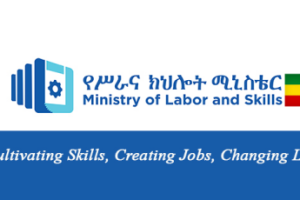
After 11 years of concerted effort, the construction of the Grand Ethiopian Renaissance Dam (GERD) is nearing its completion as it has started generating power using two of its 16 turbines. Considering the huge sum of investment on its, the political and diplomatic pressures and ups and downs the country faced in the process, it is worth building such mega power dams in many ways.
Ethiopia is one of the countries in the world with rich water resources. It is still has to go far and properly harness its water resources for the various important purposes. Still an important element that needs due attention is the development of energy from its water resources, hydroelectric power.
Energy is important for all in the world. While the developed world can afford to use advanced technologies the developing countries still need to sort out a clean, affordable and sustainable source of energy.
Modern technology has brought up many options to source of energy especially to the developing world. For instance solar and wind induced electricity are being used in parts of Africa.
Yet hydroelectric power stands as the best and highly preferred source of energy in many ways. The most important issues to consider are efficiency, affordability and environmental safety, among others.
According to Aytenew Kidane, an electrical engineer and consultant in the field, hydropower is the most preferable renewable energy source to produce more energy at a low cost. In addition, Ethiopia has a comparative advantage of hydropower sources over other energy sources since it has a lot of rivers. For him, hydro is the more environmentally friendly, low average cost to generate the energy than any other generating technology and more efficient than any other energy source.
According to Aytenew, due to the comparative resource potential in hydropower, the efficiency of the produced energy and available human resource, basically investing to exploit the energy source from hydropower is advantageous for countries like Ethiopia.
In addition to the availability of high potential resources, the discharging capacity of the water flow is also one opportunity to produce efficient energy.
The Electrical Engineer stated that the efficiency of hydropower is over 98 percent of the produced capacity while the efficiency of solar energy is 21 percent and wind 65 percent. Not only that, Aytenew added, the production cost of hydropower energy compared to other energy production is too small. The other comparative advantage in the sector, Aytenew mentioned is that Ethiopia has limited human resources in wind and solar energy technologies. The preparing, maintenance and protection cost of the sources other than hydropower is very high, he noted.
Ethiopia have enough water resource and the efficiency of hydropower energy is over 98 per cent with service durability up to 75 years, hydropower is preferable and advisable energy investment for Ethiopia, according to Aytenew. In this regard, he said, to boost the development of the hydropower sector, there is a possibility to invest in small-scale hydropower development to expand off-grid energy in the sector.
Ethiopia has now aggressively invested in the hydroelectric power sector. Somehow it is enabling the country to rapidly expand the coverage of electricity to different corners. For instance as a result of the universal electrification access programs since 2005 the country is able to electrify more than 7200 towns, according to Lemlem Misganaw, Project Portfolio Management Director with Ethiopian Electric Utility.
According to Lemlem, at the beginning the number of cities and towns in the country with access to electric power were not more than 667. But the universal access to electricity program has enabled the expansion of the service by more than 10 folds.
She further indicated that efforts are underway with stakeholders to realize 100 percent electrification with 65 percent on grip (hydroelectric power source) and 35 percent off grid (from alternative sources).
BY STAFF REPORTER
THE ETHIOPIAN HERALD WEDNESDAY 30 MARCH 2022





